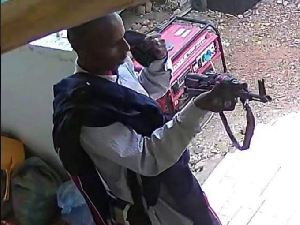Religion of Thursday, 30 August 2018
Source: ghananewsagency.org
Complete neglected health facilities projects - Baptist Convention
Reverend Dr Ernest Adu-Gyamfi, the Executive President of the Ghana Baptist Convention (GBC) has tasked the government to complete all neglected health facilities in the country.
He expressed the hope that President Nana Addo Dankwa Akufo-Addo would uphold his pledge to complete all abandoned projects despite the agitations from quarters.
“Governments come and go, but every project is eventually paid with the Ghanaian taxpayer’s money and Ghanaians must not suffer the losses”.
Rev Adu-Gyamfi was speaking at the 55th Annual Session of the GBC on the theme: “Kingdom Loyalty for Accelerated Development at Ejura in the Ashanti Region.
The annual session brought together senior pastors, of the GBC across the country and some parts of the West African continent to deliberate on issues affecting the Convention.
He said in the last four months, the GBC started operating a new Baptist Health facility at Nvulenu, pending the official commissioning of the facility, adding that within one month of the facility operation witnessed four safe deliveries.
“Currently the facility laboratory service is the best in the whole area serving the Ellembele and Jomoro districts”.
Rev Adu-Gyamfi announced that in the past year, the GBC received accreditation and pay-roll mechanisation for seven new Baptist Health Services facilities by the Christian Health Association of Ghana and Government of Ghana.
He said it was noteworthy that Churches operated in areas where regular governmental facilities were not available and that it was complementing government’s efforts and meeting the health needs of the country's rural community.
The Executive President congratulated the government for successfully implementing the first year of the Free Senior High School project despite the challenges faced during the implementation process. “I believe the Free SHS project is one of the most far reaching social intervention programme the country is currently witnessing”.
He said the GBC, for that matter Ghana would be hosting this year's All African Baptist Fellowship Western Region Women's Conference.
Rev Adu-Gyamfi announced that the GBC had established the Shalom Broadcasting Network, a Television Station not only to meet its core mandate of evangelism, but to provide the platform for sharing of religious and faith based news.
Mr Emmanuel Kofi Nti, Commissioner General of the Ghana Revenue Authority who was the Special Guest delved into the historical antecedents of taxation of religious organisations in the country.
He said the 1947 ordinance outline the first provision of exemption of tax by charitable organisations including religious organisations which specifically exempted religious bodies from paying duties on imported items.
Mr Kofi Nti said the exemptions were in recognition of the contribution made by the religious organisations in society as they prioritised the helping of the poor and needy while lifting the spiritual welfare of the people.
He said the Income Tax Degree, 1975, S.M.C.D 5 maintained the tax exemption status for religious organisations under Section 3(1)(d) but limited tax exemptions to the Christian Church with regards to their income other than derived from business.
Mr Kofi Nti said Churches had been in the fore front in societal transformation and that before and after independence churches played a significant role in the emancipation of the people when it came to the subject of education.
“Churches provide the setting for the development of the nation's human capital through the provision of schools and led the society in meeting its socio-economic needs”.
He said there was the need for pastors to build the loyalty of their church members by encouraging them, recognising exemplary services and having strategic sustainable approach which had a footprint in the lives of their members.
The Commissioner General said the GBC was one big family that needed to be fair to its members of the family, adding that, the leadership must have a programme to know and experience the working environment and activities of the pastors.














